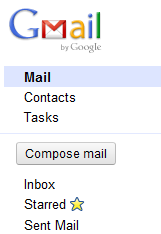“Isn’t SEO just BS?” was a question someone posed to me over the July 4th weekend, after finding out what I do for a living. My immediate reaction was one defensive of my industry and livelihood. But it did bring up some interesting ideas that I wanted to share. But first, let’s travel back in time.
The term “Eternal September” refers to a phenomenon first experienced by members of Usenet. Usenet was the precursor to internet forums that existed since the 1980s that allowed people to interact via message threads. There were established posting standards and implied rules of conduct. During Usenet’s existence, it would become flooded with new members every September, due to college freshmen who now had access to the internet and the service. These new members did not know the rules and made the entire Usenet environment bothersome to experienced and longtime posters.
In 1993, AOL began providing its users access to the service. As a result, Usenet was subject to an influx of many more members (the majority of whom had zero experience with the system). Whereas in previous years September would end and the new members would learn how to conform with the established standards of the site, this was no longer a feasible scenario. Longtime member Dave Fischer referred to the new Usenet as “the September that never ended,” or the Eternal September.
How does that anecdote relate to Search Engine Optimization?
Much like Usenet after AOL opened the floodgates, there are no true barriers to entry to get into the SEO industry. As far as I know, no respected universities offer an “SEO major” and most low level SEO jobs require no experience. Simply put, anybody with a website and internet access can claim to work in SEO and has a chance to enter the industry. In contrast, there are no amateur bankers or hobby biologists. And with good reason. Those jobs have proven real world implications. I’m not saying that SEO doesn’t, but it is at its core an industry where it’s hard to definitively measure ROI and where there is no centralized certification available to objectively QA individuals’ SEO abilities. The sad result of this is that there are many people who call themselves SEOs and many agencies who offer “SEO Services” who are (for lack of better terminology) just not that good. There are also people who practice SEO without a well-rounded knowledge of how the web works, and worse yet, people who deliberately try to manipulate search engine algorithm in a black hat manner. All these groups of people give SEO a bad name (just ask the New York Times).
Circling back to the original question I was asked a few weeks ago: Isn’t SEO just BS? Obviously, my answer was no. But I also made sure to respond that there are definitely people who call themselves SEOs who are full of it; and of course, that I am not one of them (nor is the company who employs me).
Do I feel I’m part of an Eternal September? A little bit. I envision the SEO field becoming more and more competitive with people finding out what it is, people realizing that they don’t need a college degree to learn about industry standards, and people whose only goal is to game the system for financial gain.
I also don’t see this changing until Google and other search engines recognize SEO as a real legitimate industry. The only way to do that is via official individual SEO certification tests. And that would require that Google finally admit that some SEO tactics are better than others, which I don’t see happening anytime soon.
Just watch this video from Matt Cutts:
“It’s going to be tough” indeed, Matt.


 Now, not every Google product launch arrives with such fanfare or contempt. But Google does have a long history of rolling out services, redesigns, algorithms, etc. in extremes and then inevitably scaling back after some much deserved negative feedback.
Now, not every Google product launch arrives with such fanfare or contempt. But Google does have a long history of rolling out services, redesigns, algorithms, etc. in extremes and then inevitably scaling back after some much deserved negative feedback.